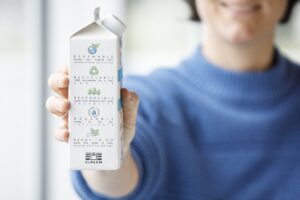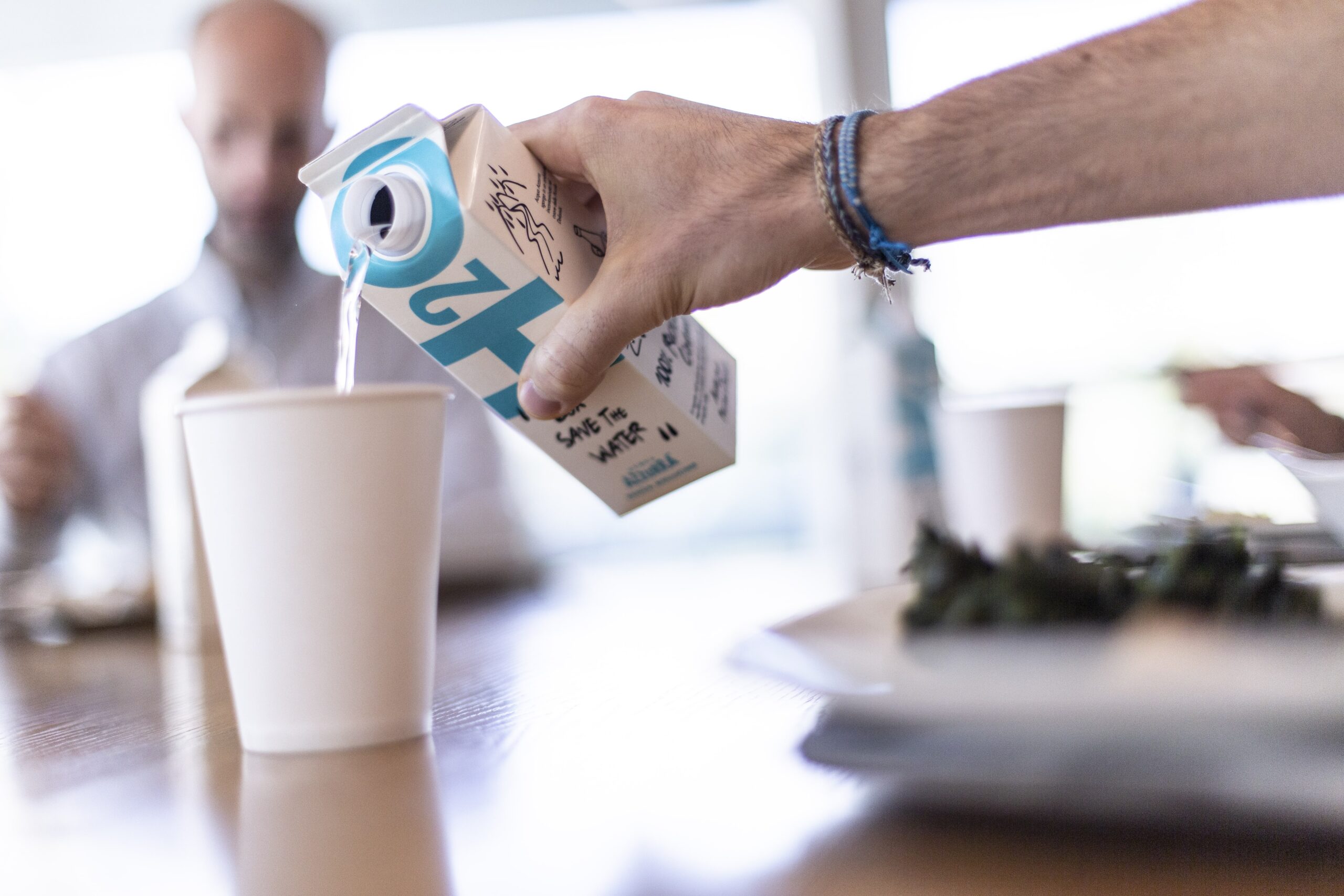Galdi, along with its American subsidiary Galdi Inc., prioritizes sustainable packaging in its production efforts and strives to offer environmentally friendly solutions. Our automated filling machines are designed to optimize efficiency and minimize environmental impact, with a particular focus on gable-top cartons. These containers, known for their recyclability, are a sustainable choice for food packaging. Through innovation and advanced technology, Galdi is committed to promoting responsible production practices and contributing to a greener future for the packaging industry.

Understanding the Choices in Sustainable Packaging
In today’s environmentally conscious world, consumers are increasingly concerned about the sustainability of their products, including the packaging. A recent study conducted by food scientists at the University of Massachusetts Amherst explored consumer perceptions of sustainability in packaging for a 12-ounce, single-serve container of orange juice. The study aimed to determine which packaging type—aluminum, carton, glass, or plastic—consumers perceived as the most sustainable and whether these perceptions aligned with reality.
Consumer Perceptions vs. Reality
The study revealed a surprising disconnect between consumer perceptions and sustainable packaging. When asked to rank the packaging options from most to least sustainable, U.S. consumers overwhelmingly chose glass as the most sustainable option, followed by carton, aluminum, and plastic. However, the study’s findings indicate that this perception is misguided.
Nomzamo Dlamini, the lead author of the study and a food science Ph.D. candidate, explained that while glass is highly esteemed by consumers, it is actually among the least sustainable options when considering the entire lifecycle of packaging. Producing and recycling glass require significantly more energy than other materials, such as plastic.
The Lifecycle Assessment of Packaging Materials
The study’s lifecycle assessment revealed that, for single-serve orange juice, a carton is the most sustainable packaging option, followed by plastic, aluminum, and finally, glass. This assessment considers various factors, including the energy required for production, transportation, and recycling. Cartons, such as those used for a carton of milk, are made from renewable resources, which significantly reduces their environmental footprint.
Dlamini noted her surprise upon learning that producing and recycling glass demands much more energy than plastic. The study highlighted that plastic’s production and end-of-life impacts are less severe than those of glass. Additionally, plastic is lighter, requiring less energy for transportation, and its aseptic sealing process is less energy-intensive than the retort system used for glass. However, cartons, especially carton gable top designs, offer an even more sustainable solution due to their efficient use of materials and ease of recycling. Moreover, innovations like cartoned water demonstrate the versatility and eco-friendliness of carton packaging, further solidifying its position as the most sustainable choice.
Motivations Behind Consumer Choices
The study also sought to understand the motivations driving consumer packaging choices. Using a method called conjoint analysis, researchers presented consumers with various packaging options, asking them to make trade-offs based on price, lifestyle, and other factors. The findings revealed that while many consumers expressed a desire to purchase sustainable packaging, the primary motivating factor was price, particularly the lowest price available.
The ideal orange juice option, according to the 847 adult consumers surveyed, was priced at $1.10 per 12 fluid ounces, packaged in glass, locally produced, and labeled as 100% recyclable. This highlights the importance of affordability in consumer decision-making.
Implications for the Food Industry
The study’s findings offer valuable insights for the food industry. Consumers are motivated to choose sustainable packaging, provided it is affordable and clearly labeled as such. The paper suggests that these options should be effective, durable, and competitively priced to encourage consumer adoption.
The message to the food industry is clear: while consumers are interested in sustainability, price remains a critical factor. By offering affordable and clearly labeled sustainable packaging, companies can increase consumer motivation to adopt environmentally friendly options. Food paper containers exemplify this balance, providing a practical and eco-friendly solution that meets consumer demands for sustainability without compromising on cost. Their ease of recycling makes them an attractive choice for both manufacturers and consumers looking to reduce their environmental impact.
Beyond Packaging: Reducing Food Waste
While packaging choices play a role in environmental outcomes, the study emphasizes that the most impactful way consumers can contribute to sustainability is by reducing or avoiding food waste. This approach has a more significant effect on sustainability efforts than the choice of packaging alone.
Carton packaging is particularly beneficial in this regard, as it often provides superior preservation properties, helping to extend the shelf life of products and thus minimizing food waste. Additionally, technologies developed by Galdi further enhance this benefit by prolonging the shelf life of products while preserving their organoleptic qualities.
The study from the University of Massachusetts Amherst highlights the complexities of consumer perceptions and the realities of packaging sustainability. It underscores the need for the food industry to balance consumer preferences with environmental considerations, ultimately promoting a more sustainable future. This highlights the importance of carton as a packaging choice that not only offers environmental benefits but also aligns with efforts to reduce waste. By maintaining the freshness and quality of food products longer, carton packaging plays a crucial role in the broader strategy of sustainability.

